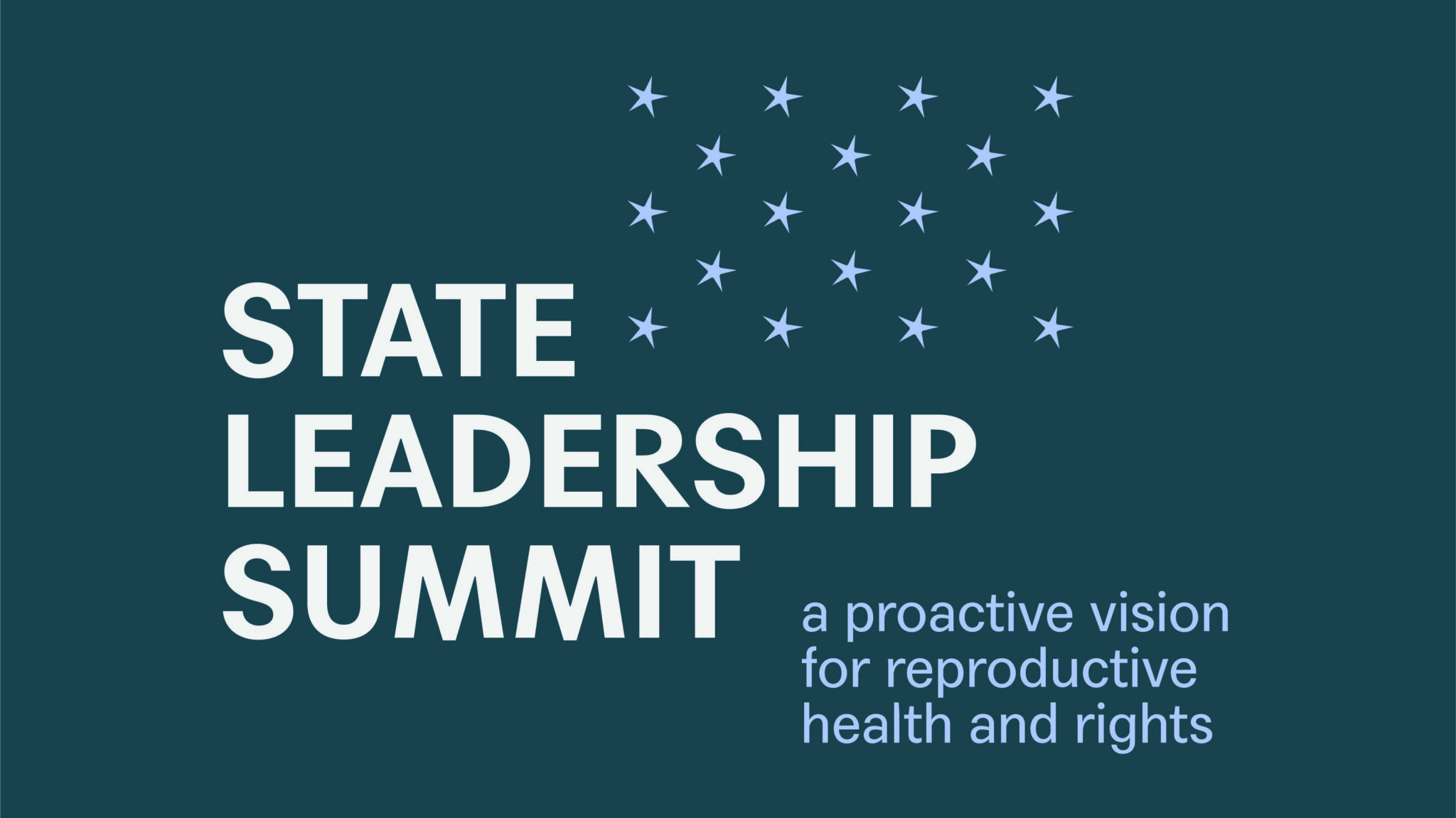Legislators, Advocates and Experts Collaborate at Center’s State Leadership Summit
Proactive strategies to advance reproductive health, rights and justice highlight discussions.

The Center for Reproductive Rights held its State Leadership Summit on October 5, bringing together state legislators and advocates from across the U.S. to create new networks, share information, build skills, and forge policy change to advance reproductive health, rights and justice.
The summit—the Center’s fifth since 2015—took place against a backdrop of the 2021 state legislative sessions in which hundreds of laws restricting access to reproductive health care were introduced and dozens passed in state legislatures across the country.
“Reproductive rights and access to reproductive health care continues to be difficult and are challenged at every level, including once again at the Supreme Court,” said Lourdes Rivera, Senior Vice President for U.S. Programs for the Center in her opening remarks. “But we are by no means powerless. In fact, we are powerful. And our job here is to do the important work for a better and more robust vision for reproductive rights and justice.”
Participants convened for a day of virtual sessions addressing inequities in access to maternal health and assisted reproduction, promoting abortion justice, and advocating for policy change.
In the summit’s keynote address, Congresswoman Nikema Williams (GA-D) spoke about her strong support for the Women’s Health Protection Act, recently passed by the U.S. House of Representatives, and her other work promoting reproductive health, rights and justice.
The event was organized and hosted by the Center’s State Policy and Advocacy Team, which works with partners to advance proactive laws and policies enhancing reproductive rights and health access in U.S. states.
Sessions at the summit included:
Supporting Families: State-based Policy Strategies to Address Inequities in Maternal Health and Infertility
In a panel organized by the Center’s Breana Lipscomb and Karla Torres, experts discussed shared inequities in maternal health and infertility in the United States, including in insurance coverage, research and data collection, and workplace support. Throughout the discussion, the panelists—including Kameron Dawson, of A Better Balance, and Frankie Robertson, of The Amandla Group, LLC—explored how maternal health, infertility, and access to care are related and how state-based advocacy and legislative action can support disproportionately impacted communities in receiving dignified maternal health care and equitable access to infertility care.
Building Power and Momentum for Abortion Justice
In the second panel, organized in collaboration with Winnie Ye, of All* Above All, panelists shared lessons learned and offered insight on how they created and launched campaigns to improve abortion coverage and ensure abortion justice in the U.S. Ana Rodriguez, of Texas Equal Access (TEA) and Lilith Fund, shared her work in Texas advocating for Rosie’s Law, a statewide bill to restore coverage and expand access throughout the state. Daniel Hamilton, of YWCA Kalamazoo, shared the importance of listening to the people most impacted when creating policy and programs to expand reproductive health services.
Keynote Address by U.S. Congresswoman Nikema Williams
In the summit’s keynote address, U.S. Congresswoman Nikema Williams (GA-D) spoke about her early career as an advocate for Planned Parenthood Southeast, her time as a Georgia State Senator during which time she attended the Center’s 2019 summit—and her current role as a U.S. Congresswoman where she is a co-sponsor and vocal supporter of the recently passed Women’s Health Protection Act (WHPA). Congresswoman Williams was introduced by Roula AbiSamra, Campaign Manager for Amplify Georgia and a member of the summit’s Leadership Advisory Council.
A Conversation between Lourdes Rivera and New York Assemblymember Jessica Gonzales-Rojas
In the final session, Lourdes Rivera had an interview-style conversation with Jessica González-Rojas, formerly the Executive Director of the National Latina Institute for Reproductive Justice and a New York State Assemblymember representing the 34th district. Assemblymember González-Rojas shared her insight on creating change as an advocate and now as a legislator, stating, “We can’t give up and we have to keep pushing and keep building. Because while we’re still facing really tough dynamics, if we continue to shift consciousness and build power among community members, we’ll get there.”
About the State Leadership Summit
The Center held the first State Leadership Summit in 2015 to celebrate legislative accomplishments taking place at the state and local level—and to create a space for people to share ideas and strategies to create change. Although allies from a range of reproductive health, rights, and justice organizations participate, the summit focuses on equipping state advocates and elected state officials to lead proactive policy developments and secure passage of such laws and policies.
The summit is created in partnership with the Leadership Advisory Council, a group of state leaders who work with the Center’s State Policy and Advocacy team on program and speaker development, providing creative ideas and visionary power to the events and its themes.
Summit Held Amidst Wave of State-level Attacks on Reproductive Rights
The summit is convening for the first time since the COVID-19 pandemic brought new challenges for state leaders and providers, including escalating attempts by state governments to restrict access to essential reproductive health care.
The 2021 state legislative session was one of the most harmful sessions in U.S. history for abortion rights and access. Since January, anti-abortion state lawmakers have enacted more than 60 laws restricting access to abortion and have introduced 420 restrictive bills—146 of which were bans, including the Texas abortion ban, known as S.B. 8, that prohibits abortion care after around six weeks of pregnancy, before many people know they’re pregnant.
Read more:

